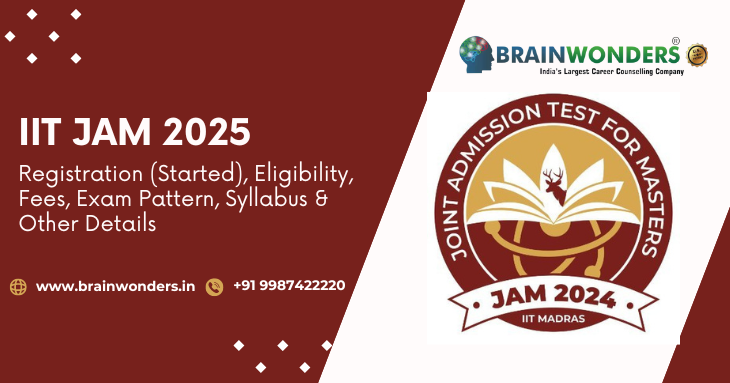

Take Brainwonders Career Test and make the right decisions for your college and course ahead
Let your unique personality, strengths, and traits guide to make the best decdision of your life!
Blog
16 February,2024 | By Brainwonders

Law courses after the 12th are tailor-made for students keen to understand the intricacies of the law, its establishment, enforcement, and other related aspects. These courses offer students more than they could have imagined, covering specialized studies in laws, legal concepts, theories, and other elements.
A wide array of law courses is available for students to choose from after schooling. Some popular options include
To gain admission to these law courses, students must pass at least the senior secondary examination, equivalent to the 12th grade, from an accredited institution or board of study. Remarkably, students from any academic background can pursue these courses.
The fee for law-driven programs at UGC-approved universities varies but is generally reasonable. Semester-wise fees for these courses fall within the estimated INR 14,000 to 46,000 Indian rupees.
The benefits of choosing law courses after 12th extend beyond merely becoming a lawyer. The valuable knowledge gained from these programs can be applied to various related fields, opening doors to government jobs or higher positions within reputed private organizations. As seen in the increasing demand for company secretaries in multiple MNCs, the opportunities are vast and rewarding.
Law, in simple terms, refers to the set of rules and regulations established for the citizens of India. Each country typically has its distinct legal system, and in India, we follow constitutional law, which encompasses numerous articles and sections that must be comprehended and adhered to.
Studying law involves delving into amendments, articles, and sections. It is a highly regarded and well-known field of study in India, offering extensive opportunities and high demand. Law students must read extensively, learn, and memorise intricate details.
Upon completing their 12th grade, students can explore the course structure, which is designed to provide a theoretical foundation and practical learning experiences to grasp the essential aspects of the course material.
Success in any field requires specific fundamental skills from students. If these skills are lacking, students must put in extra effort to thrive in their chosen field. Similarly, in the legal profession, students must possess some essential skills. Here are some of the skill requirements for pursuing a successful career in law:
Students pursuing law education have various pathways at lower and higher levels. After completing secondary education, prospective law students must meet the requirements set by prestigious law schools to enroll in Bachelor of Law programs.
For those aspiring to learn about Indian law, pursuing a law degree is necessary. After 12th grade, students can enrol in integrated courses such as BA LLB, BBA LLB, and B Com LLB, with a minimum duration of 5 years. The universities in India typically follow a semester-based system for imparting legal education. Some law colleges admit students based on merit, while others rely on entrance examination scores.
| Course Type | Course Name | Duration |
| Integrated UG Law course | BA+LLB, BCom+LLB, BBA+LLB | 5 Years |
| Bachelor Law Course | LLB | 3 Years |
| Master Law course | LLM | 2 Years |
| Diploma Law Course | DIPP, PGCCL, PGDCJ | 1 to 2 Years |
| Certificate Law Course | CHR, CCP, CIHL, CAHT, CCLBL | 6 Months |
| Law Course | Duration |
| BSL + LLB | 5 years |
| BA + LLB | 5 years |
| BA + LLB (Hons) | 5 years |
| B.Com + LLB | 5 years |
| B.Com + LLB (Hons) | 5 years |
| BSc + LLB | 5 years |
| BBA + LLB | 5 years |
| BBA + LLB (Hons) | 5 years |
| BTech + LLB | 6 years |
| Diploma in Business Law | 1 year |
| Diploma in Taxation Laws | 1 to 2 years |
| Diploma in Human Rights | 1 to 2 years |
| Diploma in Co-operative Law | 1 to 2 years |
| Diploma in Criminal Law | 1 year |
| Diploma in Women Studies & Gender Justice | 1 year |
| Diploma in Corporate Law & Management | 1 year |
| Diploma in Cyber Law | 6 Months to 1 year |
| Certificate in Law (Cyber security, Human Rights) | 6 Months to 1 year |
| Certificate in Law (Corporate Law, Taxation Law, and Labor Law) | 6 Months to 1 year |
| Diploma in Information Technology Laws | 6 Months to 1 year |
| Certificate Course in Consumer Protection | 6 Months |
| Certificate Course in Business Law | 6 Months |
| Certificate Course in Cyber Law | 6 Months |
| Certificate Course in Insurance Law | 6 Months |
| Certificate Course in Corporate Law | 6 Months |
| Certificate Course in Anti-Human Trafficking | 6 Months |
To pursue a law degree or any vocational course in law, students must meet specific eligibility criteria. They should have completed their matriculation and intermediate from a reputable institute. A minimum score of 50% is required for general category candidates, while SC/ST candidates should have secured an average of 45%.
All aspiring law students must clear a law entrance exam to gain admission to top law colleges in India. Some well-known entrance exams conducted annually for law courses include LSAT, AILET, and CLAT. Generally, these exams are held between April and June.
Integrated law courses of 5 years can be pursued in various institutions across India after completing the 12th grade. Students can enroll in these courses with a minimum score of 80% in any stream. Several 5-year law courses are available, such as BA-LLB (for students after 12th in arts) and BCom-LLB (for students after 12th in commerce). It is worth noting that the fees for these courses vary depending on the stream and the institution.
BA LLB is a 5-year integrated law course offered by many institutes in India. It is a popular choice among students interested in the law field, as it enables them to start practicing law professionally. To gain entry into the BA LLB course in India, students must appear in national-level entrance tests such as CLAT, AILET, LSAT, and more.
The minimum percentage required for BA LLB after the 12th is 50%, with a relaxation of 5% marks provided to reserved category students. However, the percentage criteria may vary according to the university. Other law courses available after the 12th are as follows:
To pursue law courses in top institutes in India after completing the 12th grade, students must appear for several law entrance exams at the national level. Renowned government and private law colleges, such as NLU and Lloyd Law College, accept valid law entrance test scores from exams like CLAT, AILET, LSAT, SAAT, and others. Eligibility criteria include passing the 12th class with a minimum of 45% marks.
Law courses always pique students' curiosity by allowing them to delve into various aspects of law and order in detail. Any specific stream does not bind students with a 12th-grade science background to pursue law courses. They have multiple choices to opt for law courses based on their interest in the field.
After 12th, students often opt for law courses to better understand the legal domain. Those with a commerce background can also pursue law courses, applying their knowledge professionally. Courses like BBA-LLB, BCom-LLB, and LLB are available for commerce students, providing knowledge in property law, taxation, torts, company laws, etc. Admission to these courses is based on merit or entrance exam scores, depending on the university.
Law courses after 12th arts are popular options for many interested students. After completing 12th grade in the arts stream, students can enroll in an integrated program of LLB, commonly known as BA. These law courses generally last three years if pursued after a bachelor's degree or five years in an integrated course. Admission to these courses is through preliminary exams at recognized institutions, and students can opt for courses like BA-LLB and BSc-LLB.
Law diploma courses offer students brief knowledge related to the concepts of law and order. These courses are available at multiple levels, including a diploma in law after the 12th. The duration for pursuing diploma courses after the 12th is generally three years. Students who have completed 10+2 from a recognized institution are eligible for admission. Admission is usually based on merit or through national entrance examinations.
Criminal law courses specialize in practices related to criminal offenses. Students interested in detailed criminal law knowledge can opt for these courses after the 12th. Several bachelor and diploma courses in criminal law are available, and admission is based on the applicant's qualifying scores in the preliminary exam.
Corporate law is a well-known course in India, offering deep knowledge of sole proprietorship, corporations, partnerships, and more. Corporate law is available at both undergraduate and postgraduate levels. Undergraduate candidates can specialize in business law for three years, while postgraduate candidates can specialize in the field of law.
To become a lawyer in India after passing class 12th, students must pursue an integrated bachelor's degree in law, such as BA LLB, BBA LLB, BCom LLB, etc. Alternatively, students can complete their graduation and then pursue an LLB degree. Students must enter law studies to build a career as a lawyer. Admission to law courses often requires clearing law entrance tests. Civil, criminal, family, or real estate law specialization depends on the chosen law course.
Law courses offer various opportunities for students aspiring to pursue a career in the judiciary and law sectors. After completing the 12th class, students interested in law have multiple options in various courses provided by institutions. Students can opt for a diploma or bachelor-level course depending on their interests and priorities. A diploma-level course provides an overview of the law, while a bachelor course like LLB requires completion of a bachelor's course (BA, BSc, etc.) as a prerequisite. Students can appear in court hearings after pursuing a bachelor-level law course like LLB.
Several international law courses are available, including BA LLB International Law, BA LLB Legal Interest of Humankind in International Law, BA LLB Kashmir Counterinsurgency and International Law, Diploma in International Law, Diploma in International Business Laws and Corporate Laws in India, Certificate in Public International Law, Certificate in Private International Law, Certificate in International Humanitarian Law (CIHL), and more.
The fees for law courses vary depending on the course level and the institution's facilities. The mode of study also influences the fee, with regular mode courses typically being higher in fees compared to distance mode courses.
| Course Name | Average Fees |
| BA LLB |
INR 3,720 – INR 8,00,000 |
| Bachelor of Law [LLB] |
INR 2,900 – INR 6,94,000 |
| Certificate in Law |
INR 1,400 – INR 27,000 |
| Diploma in Law |
INR 6,500 – INR 50,000 |
A career in law after completing 12th grade offers numerous opportunities for students. With a law degree and vital skills, individuals can enter diverse industries and find employment in various fields. The following are some of the employment opportunities available in the legal sector.
| Designation | Salary |
| Lecturer/Professor of Law | INR 5.5 LPA |
| Corporate Lawyer | INR 5.4 LPA |
| Investigator | INR 4.2 LPA |
| Criminologist | INR 3 LPA |
| Banking and Insurance: Administrative Law Officer, Specialist Law Office | INR 4.5 LPA |
| Public Prosecutor | INR 4.3 LPA |
| Litigators | INR 2.0 LPA |
| State-Level or Local-Level Judge | INR 6.5 LPA |
| Solicitor | INR 7.8 LPA |
| Paralegal | IN|R 2.0 LPA |
| Litigation Support Professional | INR 2 LPA |
| Banking and Insurance: Administrative Law Officer | INR 2.8 LPA |
Frequently Asked Questions:
1. Which law course is best after the 12th?
Answer: The best law course after the 12th depends on your interests and career goals. Some popular options include BA LLB, BBA LLB, BCom LLB, and integrated courses like BSc LLB. Choose the one that aligns with your passion and aspirations.
2. How can I study law after the 12th?
Answer: To study law after the 12th, you can apply for various law entrance exams like CLAT, AILET, LSAT, etc., conducted at the national or university level. Clear the entrance exams, meet the eligibility criteria, and secure admission to the law course of your choice.
3. How many years is LLB after 12th?
Answer: LLB after 12th is generally a 5-year integrated course. It combines undergraduate studies with legal education, preparing students for a career in law.
4. Can we do 3-year law after the 12th?
Answer: No, any discipline's regular 3-year LLB course is typically available after graduation (bachelor's degree). For students who have completed 12th grade, the option is to pursue the 5-year integrated LLB course.
5. Is it hard to study LLB?
Answer: The difficulty level of studying LLB may vary from person to person. Law studies can be challenging, requiring rigorous reading, research, and analytical skills. However, with dedication, passion, and hard work, many students find it rewarding and fulfilling.
6. What are the 4 types of law?
Answer:
The 4 types of law are as follows;
Take Brainwonders Career Test and make the right decisions for your college and course ahead



,_Syllabus,_Pattern,_Old_Question_Papers.png)

